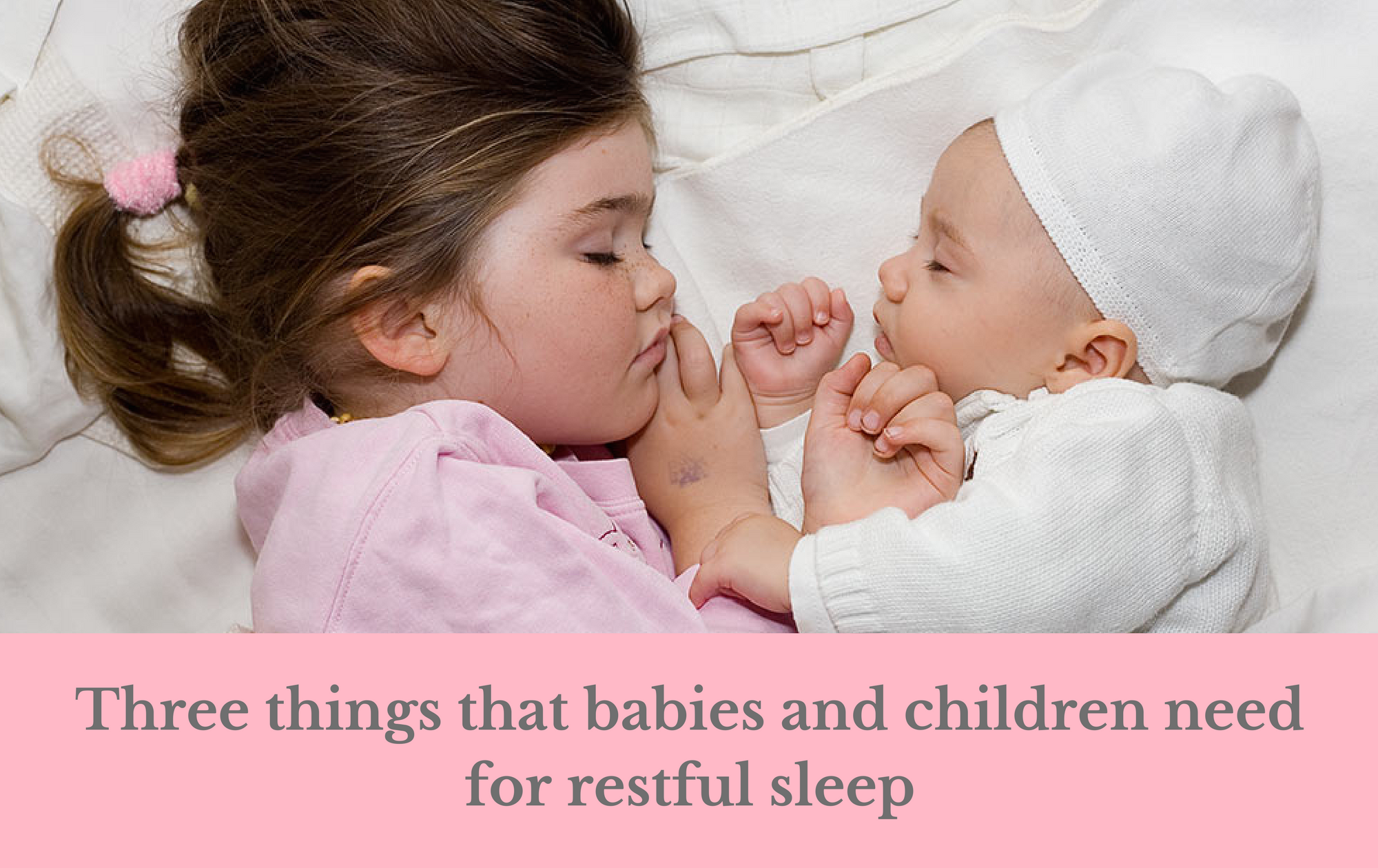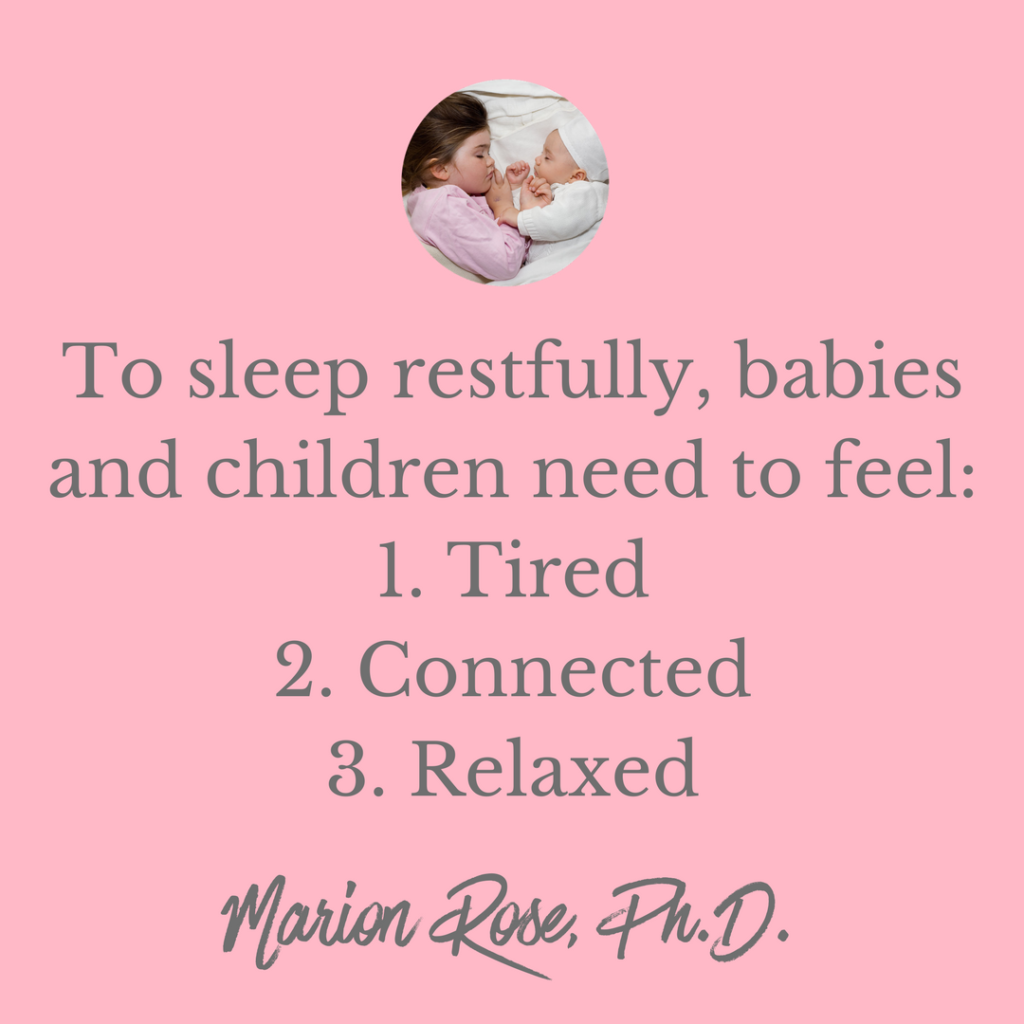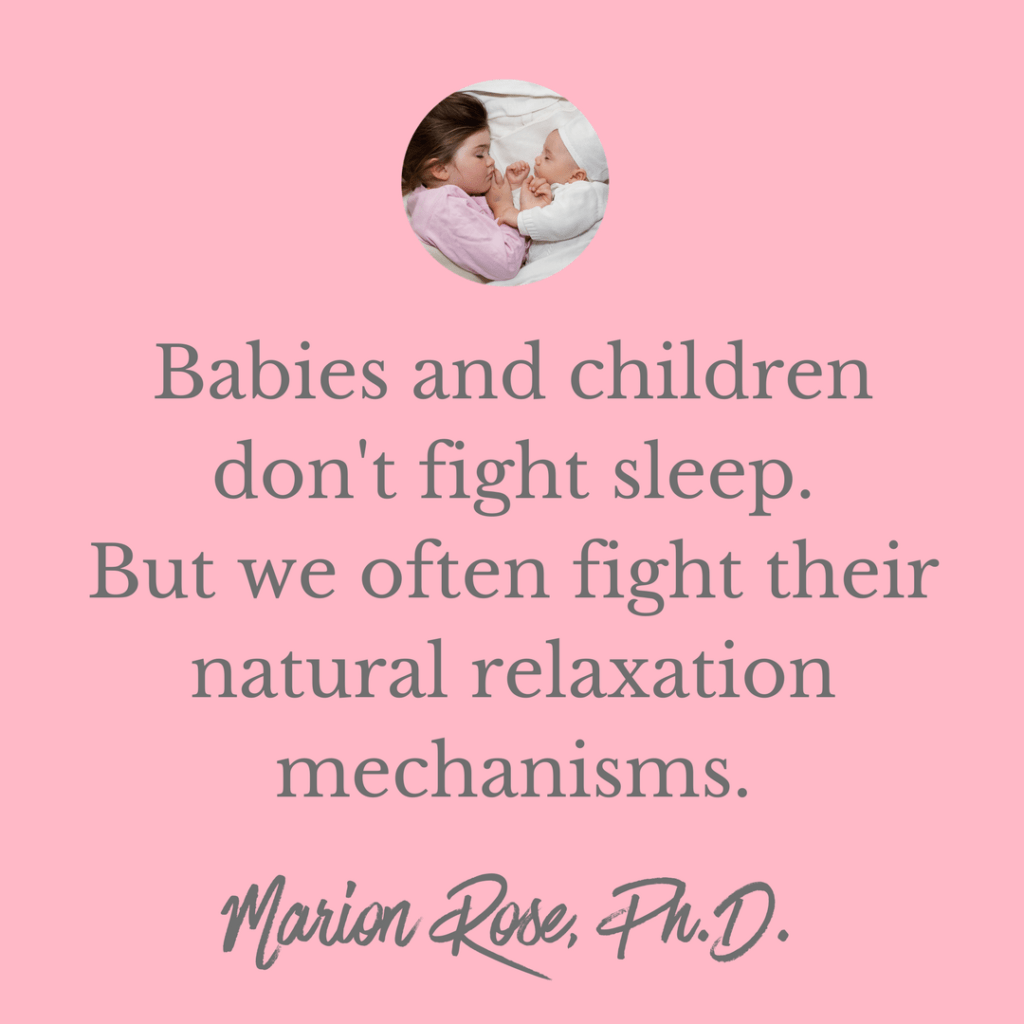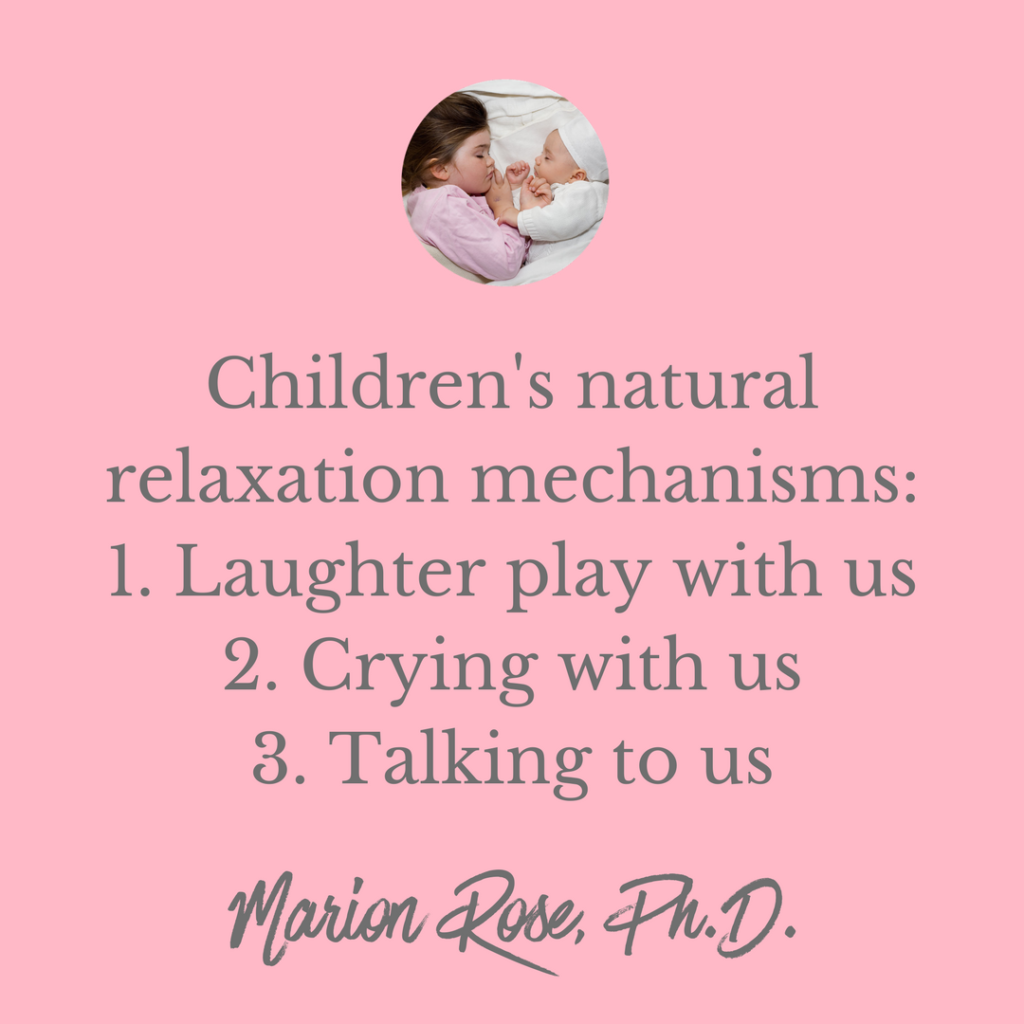Hello again!
I did a FB live on Saturday, all about sleep from an Aware Parenting perspective. You can watch it HERE.
(I’m going to do a sleep Q and A FB live soon too; so if you have sleep and AwP questions, come along and ask on my FB page HERE.)
I’ve also made a summary for you; and that’s what this post is!
1. Aware Parenting has a very different approach to sleep from most other parenting approaches
There are lots of ways of thinking about sleep in Aware Parenting that are very different from most other ways of understanding babies and children (apart from Hand in Hand Parenting/Parenting by Connection, which is very similar).
2. From an Aware Parenting perspective, many of the ideas about sleep different from those that you might see in other parenting approaches.
For example, in many other approaches, you might hear:
That babies and children fight sleep;
That babies and children don’t want to sleep;
That they resist sleep;
That they need to be taught to sleep;
That they need to learn to sleep.
From an Aware Parenting perspective, there are different ways of understanding why babies and children often won’t go to sleep when they are tired.
3. If you think about this from a wider perspective, does it make sense?
If you think about this from a wider historical perspective of human beings, does it make sense that babies and children would fight sleep, or need to be taught to go to sleep?
Sleep is a VITAL human physiological need – which is why depriving people of sleep is a form of torture in some places! Our bodies need it!
If you think about all the other ways that babies and children’s bodies are primed to develop and flourish and fit into their culture, does it make sense?
Think of the ways that a baby and mother’s body are finely intertwined and work together, such as during birth, the fine tuned process of mother and baby’s body signalling to each other; or breastfeeding, when the amount and kind of suckling profoundly affects the type and amount of milk that a mother generally has.
Does it make sense to think that babies and children would be so incapable of sleeping, which is such a fundamental physiological human need?
But if sleep is natural, why do so many babies and children NOT SLEEP AS MUCH AS THEIR BODIES NEED?
Why do many babies and children often not go to sleep when they are tired?
Why do many babies and children often wake up before they’ve had enough sleep?
What’s going on?
4. I always find it really helpful to reflect on our own experiences, to see if that sheds any light on our babies and children.
Are there times that you find it hard to go to sleep, or you’re tired but you do everything but sleep, or you wake up in the middle of the night and take ages to get back to sleep, or you wake up really early and don’t go back to sleep?
Are those times when you are thinking about something painful or uncomfortable that happened?
Are those times where you have an unresolved situation, perhaps with a friend or partner or family member?
Perhaps there are things you didn’t say or didn’t express to them?
Or perhaps you’ve felt overwhelmed, such as when you’ve had really busy days and you haven’t processed them and even though you’re really tired, you aren’t able to go to sleep?
Or perhaps you’re feeling anxious or sad or agitated?
5. And what about when you sleep really soundly and restfully? What kinds of things have happened before that?
When you’re feeling really happy?
When you’ve had lots of connection and fun?
You’ve laughed a lot?
You’ve had intimacy with your partner?
When you’ve expressed some big feelings to someone who was listening to you, and you felt really relieved to let it out?
You’re feeling really relaxed in your body?
5. In what ways might our babies and children be similar to us? Might they find it hard to sleep when:
They’ve had an overwhelming day and they haven’t processed their feelings about it (remember for babies that they can be easily overwhelmed by things that are everyday occurrences for us!)
They haven’t had the chance to express their feelings about things that happened.
They’re feeling sad or confused or anxious or agitated.
Something painful or uncomfortable happened for them.
(OF COURSE THERE MAY BE PHYSICAL THINGS GOING ON TOO – for both adults and children – please always take these into account. This can include internal things like allergies or sickness, but also responses to external things like chemicals in food, bedding, cleaning products, soaps, etc., as well as things like electro-magnetic radiation and other environmental factors.)
6. When might babies and children sleep soundly and restfully?
When they’re feeling really happy.
When they’ve had lots of connection and fun.
When they’ve laughed a lot.
When they’ve had lots of intimacy, skin to skin contact, eye contact. etc.
When they’ve expressed their feelings to us and we listened.
When they feel really relaxed in their body.
7. So, from an AwP perspective, babies and children need three things to sleep restfully and soundly (I think this applies to adults too!)
To feel tired
To feel connected
To feel relaxed
8. Feeling tired
Some signs of tiredness are really easy to see. Yawning, rubbing eyes, losing coordination, and wanting to sit or lie down.
But again, Aware Parenting has some different perspectives on some of the other things that other parenting paradigms see as being signs of tiredness.
For example, things like crying, running around, being ‘silly’, wanting to be rambunctious, crying over a small thing.
From an AwP perspective, when babies and children and adults are tired, we are less able to repress our feelings.
We’re designed to work that way – so we can let out the feelings before we sleep, so that our bodies feel more relaxed.
So, those things aren’t so much a sign of tiredness as a symptom of feelings that are trying to come out and are now coming out more easily because of the tiredness.
They are actually our NATURAL RELAXATION MECHANISMS – which we are going to talk about more in the relaxation section.
9. Feeling connected
Babies and children in particular need to feel connected in order to sleep. The younger they are, the more they will need that connection WHILST they are going to sleep.
The idea of babies going to sleep alone is a very recent one – it came around with the Industrial Revolution.
And often, children will still need connection WHILST they are going to sleep.
AND, if they don’t need it whilst they’re going to sleep, then the more they’ve had connection during the day, but particularly in the period leading up to sleep, the MORE they will be able to carry that sense of connection in their bodies, which signals to their nervous system that it’s safe to sleep.
10. Feeling relaxed
This is perhaps the most interesting part of all.
Because this is where we often DO a lot of things to try to help our babies and children feel relaxed.
We might:
feed them;
rock them;
sing to them;
take them in the car;
push them in a stroller or push chair;
read to them;
ask them to read to themselves;
give them a dummy or pacifier;
etc. etc.
These things CAN still be helpful, but they are likely to be unhelpful if we are doing them against a child’s natural relaxation mechanism – in other words, if they are trying to use their natural relaxation mechanism and we’re doing one of these things to counter that.
But again, I would love to ask you about those times when you’re feeling overwhelmed or agitated or sad or you’re ruminating on something that you didn’t say.
You might find yourself doing the adult versions of this – having a glass of wine, watching Netflix, scrolling FB or Instagram, chewing your nails, etc.
Do you find that sometimes when you do this, that once you’re in bed, you still feel agitated, or you still find yourself waking up in the middle of the night?
And if so, why do you think that might be?
11. Because often, we are just bypassing the feelings that are there.
We aren’t listening to them, we’re simply distracting ourselves from them. And those feelings are still there, which might mean that we’re restless in bed, or we keep on waking up, or we wake up and can’t get to sleep.
And the same can often happen for babies and children.
We do all these things to try to make them relaxed, but often the causes of their lack of relaxation aren’t being addressed, so those feelings are still sitting in there, making it hard for them to feel relaxed enough to sleep, or if they do go to sleep, they might wake up next sleep cycle or when there’s a noise. Those feelings are still there.
In other words, we aren’t addressing the root cause.
And again, of course there can be physiological reasons here – reactions to food, or the chemicals in bedding, or EMR etc., so please always keep in mind the physical as well as the emotional reasons!
12. SO, what can we do to help our little ones go to sleep when they’re tired and sleep until they’re rested?
We can address these root causes:
a. Watch for their tiredness cues and respond;
b. Help them feel connected;
c. Cooperate with their natural relaxation mechanisms.
(The younger a baby is, the smallness of her stomach will mean that she will get hungry before she’s had all the sleep her body needs at night, but listening to these three things during the day and in the evening can also make sure that she’s primarily waking up for hunger, not because she’s got feelings to share.)
13. Watching for tiredness
– that means not trying to get them to go to sleep if they’re not tired.
Watching out for tiredness cues, responding promptly if possible, and remembering that crying, silliness, playing etc. aren’t just tiredness – these are actually our children USING THEIR NATURAL RELAXATION MECHANISMS and trying to feel naturally relaxed.
In other words, they aren’t fighting sleep. It’s actually more likely that WE ARE FIGHTING THEIR NATURAL RELAXATION MECHANISMS.
14. Help them feel more connected.
Things like cuddles, closeness, attachment play, rough and tumble, and body-based games are most helpful
Follow their lead here! Clearly, if they’re already relaxed in bed, you won’t be inviting rough and tumble. But if they are inviting rough and tumble, then you could join in!
(Cuddles may not be having the relaxation effect if your baby or child also doing things like pinching our skin, or rubbing our skin, or needing to only be in one position!)
Connection is such a deep, physical and emotional thing.
Sometimes cuddles are enough to give them that deep sense of connection, but often, more high-octane connection is needed, especially if they are inviting physical play – which is the subject of our next point:
15. Cooperating with their natural relaxation mechanisms.
Those are:
Play with loving support;
Laughter with loving support;
Crying with loving support;
Raging/tantrums with loving support;
Talking with loving support (the younger the child, the less effective this one tends to be because the more the release needs to be physical and physiological).
Notice that they all need OUR SUPPORT for these to be effective!
THE MOST IMPORTANT THING TO REMEMBER IS to follow your child’s lead on this.
For example, if they are jumping around and being silly, jump around and be silly with them!
If they’re telling you about their day, listen to them.
If they’re doing silly goofy things, join in and do those with them.
If they are crying over something small, listen to their tears. Respond lovingly, “I’m here with you. I’m listening. I see that you’re upset.” The younger they are, the more closeness they need when they’re crying. Babies need to be held when they’re crying. Remind yourself that as long as all their needs are met, then they are using their natural release mechanism.
If they’re having a rage or tantrum, stay right there with them and listen.
If they’re hitting or biting, set a loving limit and listen to their feelings.
If they’re laughing and having fun, and suddenly they get pinchy or bitey, set a loving limit.
If they’re laughing and suddenly the laughter turns to tears, stay and listen.
16. What can you do to help yourself implement this?
1. Be gentle with yourself. Resource yourself FIRST eg. your own Present Time beforehand.
2. Do it your own way. Play with it. Experiment. Play with reorganising your evening.
3. OBSERVE your child afterwards. How is their sleep? How is their muscle tension and eye contact? How much do they move around at night? Are they smiling more?
4. Notice if they are more free now to share their more painful feelings with you. Just like talking to a friend who can really hear you, once our children know we’re going to listen to more of their painful feelings, they’re likely to show you more of them.
5. If you’re not resourced or tired, you can always use your old strategies (and notice the differences afterwards).
This is just the tip of the iceberg! If you want to find out more details about exactly HOW you can implement these ways more, and cooperate with your child’s natural relaxation mechanisms more, here are some more resources.
More resources:
Free intro course to Sound Sleep and Aware Parenting.
Five week course on Sound Sleep and Secure Attachment with Aware Parenting.
Free Attachment Play intro Course.
Four week Attachment Play Course.
Love,
Marion



